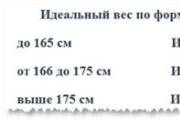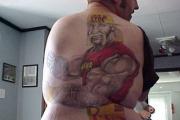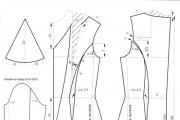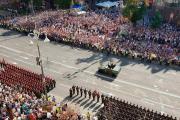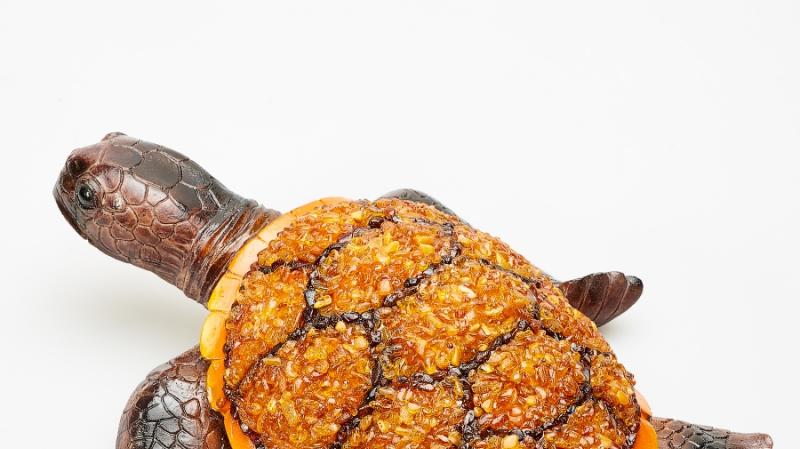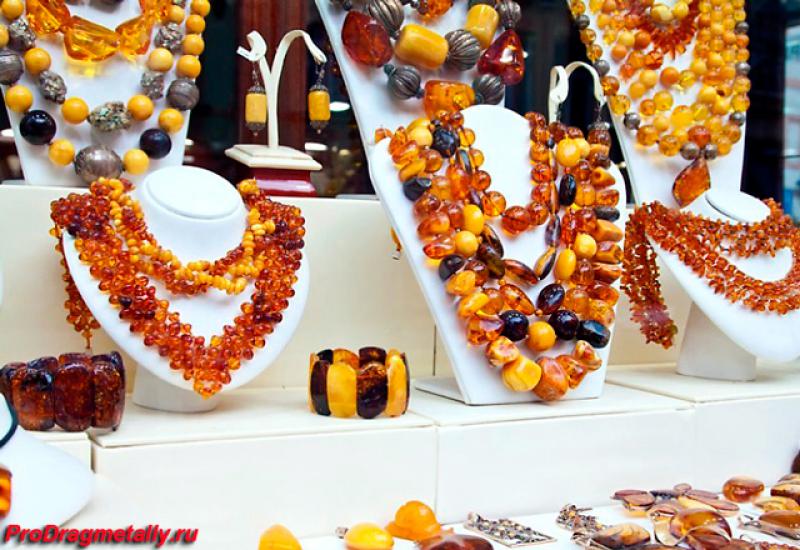“On the place and role of veterans of public organizations in the patriotic education of the population of the city. Patriotic education of youth The role of veteran organizations in the patriotic education of youth
At a meeting of the Public Council of the Ordzhonikidzevsky District Administration, Ilnur Gabdrakhmanov, Deputy Director of the MBU "Center for Patriotic Education of Youth" of the urban district of the city of Ufa of the Republic of Bashkortostan, spoke about the role of veteran organizations in civil patriotic education youth.
By patriotic education we understand the purposeful formation of personality young man as an active, responsible, patriotic citizen of society.
Young people with modern information are eager to understand the complexities of our time, trying to find the right path to their future. And society, the state, should help young people in this
The leading role in the patriotic education of youth belongs to veteran organizations. Together with veteran organizations, a lot of work is being done aimed at fostering patriotic feelings, the formation of spiritual and moral values in children, adolescents and youth, the preservation of cultural and historical traditions and continuity between generations.
We work closely with veteran organizations operating in the capital of the republic. Especially with the Ufa City Council of War, Labor, Armed Forces and Law Enforcement Veterans; Regional public organization "Veteran" of the Republic of Bashkortostan and the Bashkir Republican branch of the All-Russian public organization "Combat Brotherhood". Equally with such organizations as the Regional Branch of the All-Russian Public Organization "Russian Union of Veterans" of the Republic of Bashkortostan, the Regional Public Organization of the Republic of Bashkortostan "Bashkir Union of Combat Veterans" and the Maritime Assembly of the Republic of Bashkortostan.
An effective form of patriotic education is courage lessons conducted by veterans in educational institutions. Direct communication of people of heroic destiny, their stories about selflessness, disinterestedness, hard work, devotion to their homeland, themselves and their comrades, effectively affect young people, forcing them to think about the meaning of life, about enduring values that are very important for the formation of a citizen, a patriot of the Fatherland.
Meanwhile, veteran organizations of the city closely cooperate with the Department of the Ministry of Internal Affairs in carrying out military-patriotic education of youth. Cooperation in this direction with DOSAAF organizations is expanding, which are returning to their former functions.
Veterans organizations are also actively involved in holding events, dedicated to the Days military glory, victorious days and memorable dates of Russia.
A promising form of work of veteran organizations in the patriotic education of youth is the supervision of these organizations over military-patriotic clubs and associations.
print version
Neborskaya Valentina Efimovna | Photo Irina Shemyakina news agency "Tyumen line"
The chairman of the council, Valentina Neborskaya, spoke about the work of the Omutinsky District Council of War Veterans and Home Front Workers in an interview with the Tyumenskaya Line correspondent.
Valentina Efimovna worked at the school for 31 years. She dedicated her life to educating the younger generation. She was distinguished by her integrity, honesty, diligence and perseverance, sincerity and sincerity. She went from a simple rural teacher to the head of the district department of public education. She always worked on herself, passed on her rich teaching experience to others. For her work, she was awarded the high government award "Excellence in Public Education", has an award from the State Duma Committee on Education and Science. Listed in the Book of Honor of the region for successful work in the regional branch of the society "Knowledge". And her career did not end there, at the age of 63 she headed the Omutinsky District Council of War Veterans and Home Front Workers, for which she was listed in the Book of Honor of the Regional Council of Veterans.
- How did you get started in the Veterans Council?
I have always been active. My position in life is to work for the good of our great motherland. When I went on a well-deserved rest, the participants of the Great Patriotic War - Roman Nesterov, Nikolai Cherkashin, Konstantin Shulgin, Yakov Naikov Yakov - convinced me to head the Council of Veterans. They knew me as a good lecturer, as the head of the district department of public education, and, according to them, as a good person.
- When you started working on the council, how many veterans were registered?
There were more than 300 veterans, participants of the Great Patriotic War, and more than four thousand home front workers who have now been awarded the title of war veterans.
- What was your job?
I started working as the chairman of the district council of war veterans and home front workers in 1998. At that time, the main task was to explain to veterans how to live in the modern world. It was the time after perestroika, the documents of previous years were outdated, and the new provisions and documents did not come into force. New departments were created, where new personnel without work experience came. People were literally running around. In this situation, it was necessary to convince people that everything will work out. Many came to the council of veterans with the words "they came to the council of veterans as the last resort, if they don't help us here, they don't explain anything, then there is nowhere else to go." Therefore, I had to carefully, carefully, and most importantly, respectfully talk with people. Sometimes the conversation ended with these words: "Thank you, even if you can't help, at least you talked to us, reassured us." People left with the hope that their issue would be resolved, at that time it was very important. Then I began to receive consultations, to understand the issue with which they addressed me.
- What questions do veterans most often come with?
The first is social services and their performance in accordance with regulatory documents, the second is material assistance. The home front workers received very small pensions, so they asked for material assistance for various needs, to fix a roof for someone, and to buy food for someone. Funds for material assistance were allocated in two directions: part of the money came from the regional council of veterans, and part was given by sponsors. The database of all enterprises and organizations created in the Soviet era, which continued to work, was still preserved. These enterprises had primary veteran organizations.
- Did you manage to help all the veterans?
I created an individual card for each veteran: where and by whom he worked, what his pension is, how many children, where they live, whether they have the opportunity to help him. We have seen whether or not a veteran can do without our help. Every old man was not only on "civilian registration", but also in plain sight. Even those who were bedridden by illness.
- How were the issues to be resolved?
She worked with the heads of rural administrations, with the heads of all organizations and enterprises.
- Veterans know how not only to work, but also to have a rest, how was their leisure time organized?
Even before I came to this position, a district choir of veterans was created under the leadership of Maria Chepli, which successfully continues its work and occupies one of the first places among veteran organizations of the Tyumen region. With concert programs they travel to neighboring districts of the region, perform at schools. Traditionally, veterans celebrate Victory Day and the Day of the Elderly. There are veteran clubs where everyone finds something to their liking. It is obligatory to congratulate the anniversaries.
- Do veterans take part in public life?
The most active. The councils of the primary organizations are a support for the heads of administration in solving many issues on the ground. Members of veterans' councils carry out explanatory work during elections, participate in election commissions. When a population census is conducted, veterans are necessarily involved. They accept Active participation in the organization of all holidays that take place in the territories of municipalities. The implementation of the regional program for self-sufficiency and self-employment is not complete without their participation. Councils of veterans have done and are doing a lot of work on patriotic education with schoolchildren. Patriotic concerts, meetings with veterans, lessons of courage, meetings with veterans of the Afghan and Chechen wars. I have always been amazed at the attention and interest with which children listen to us. Poetry evenings are organized together with schoolchildren. It turns out that many veterans write poetry. Councils of veterans have always contributed to the creation of cadet classes.
- Did the younger generation help you in your work?
Each school had a responsible person for working with the elderly. The students actively provided assistance: to bring water to someone, to put firewood in a woodpile for someone. We always congratulated veterans on all holidays.
- For an elderly person, there is nothing more precious than health. What measures did the council take to maintain it?
In the early 2000s, a lot of effort went into rebuilding medical and obstetric stations in the field. During the perestroika period, many FAPs closed, which turned out to be a serious problem. We had to go from the villages to the district center, and the buses ran intermittently at that time. It was necessary to show perseverance at all levels of the councils of veterans in order for the FAPs to be reopened and provided with workers. Together with the Department of Health, they supervised the work of FAPs. Our duties included drawing up a schedule for the treatment of participants in the Great Patriotic War in the regional cardiological center and in the hospital. The sanatorium "Red Carnation" was created for pensioners, regardless of category. Be sure to ensure that each district hospital were equipped with separate wards for participants in the Great Patriotic War with more comfortable conditions. Controlled the distribution of free medicines.
- How was the work of veterans' councils evaluated?
The regional council of veterans analyzed the work done, compared, summed up the results, which were considered at the regional plenums. In accordance with the merits, awards were handed out, documents were drawn up for the presentation of the Governor's Certificate of Honor.
- What was the most difficult part of your job?
In my life, it always turned out that if I undertook to solve a problem, I always solved it. Yes, and all the heads of districts, heads of rural administrations met me halfway, and together we found an opportunity to help veterans. I am very grateful to all the heads of enterprises and organizations for supporting me and helping me. I knew how to convince and find a common language with everyone.
- What do you wish the veterans today?
I wish them to remain optimistic. Optimism is needed today. Maintain our benevolence, which is inherent in veterans, war veterans and home front workers and the older generation in general. I wish they were surrounded only good people and, if necessary, was able to receive in a timely manner medical care and treatment.
- How does the Veterans Council continue to work today?
Today, the Omutinsky District Council of Veterans is headed by Nina Abrosimova. Leaving for a well-deserved rest, I tried to keep the main backbone of the council of veterans, and they continued to work with dignity in all areas determined by the charter of the All-Russian Council of Veterans. The main emphasis is on the patriotic education of young people.
There are 23 primary organizations in the organization of veterans of war, labor, the Armed Forces and law enforcement agencies of the Tsilninsky District. The district council consists of 35 people, the presidium consists of 7 people.
25.9 thousand people live on the territory of the municipality. Recipients of pensions and benefits 32% of the population, pensioners by age - 6752 people. Participants and invalids of the Great Patriotic War - 12 people, soldiers of the last military draft - 4 people, widows - 125, children of the war - 1360 people.
The District Council of War and Labor Veterans organizes its work according to the statutory requirements and resolutions of conferences, plenums of the Regional Council of War and Labor Veterans, Armed Forces and law enforcement agencies.
One of the important directions in the work of the veteran organization is the patriotic education of young people on the example of the older generation and the traditions that have developed in the region. This work is being built in accordance with the municipal program "Development of youth policy in the territory of the Tsilninsky district for 2016-2020". In his Address to the Federal Assembly of the Russian Federation, President Putin V.V. the issue of patriotic education of youth singled out as one of the priorities of state policy. The Tsilninsky District Council organizes its work taking into account this instruction.
The Council of Veterans works in all areas together with the administration of the district, the Council of Deputies of the district, administrations of settlements, organizations and institutions of education, culture, additional education, libraries, museums, public and religious organizations.
For many years, professional teams of teachers, psychologists, law enforcement officers, cultural workers, clergy, etc. have been looking for and finding new forms and methods in the education of children, adolescents and youth in the region.
With a good return, when attracting veterans and youth, the traditional events that have developed in the region to celebrate the Victory Day, the Days of Military Glory, the birthday of V.I. Lenin, Russia Day, Defender of the Fatherland Day, Day national unity, Day of withdrawal of troops from Afghanistan, Youth Day, international day protection of children, Family Day, love and fidelity, Mother's Day, Father's Day and other holidays and memorable dates. Among them are such mass events as a rally-requiem on June 22, Village Day, National holidays"Akatuy", "Sabantuy" and others.
6,310 young people aged 14 to 35 (or 24.2%) live in the district, including 2,307 school students, 296 students of a technological college, 3,707 people. working youth. The main areas of work with the involvement of veterans are spiritual, moral and military-patriotic education, support for the volunteer movement, prevention of asocial manifestations among the youth, participation in organizing youth employment and leisure.
There are 12 patriotic clubs in the district, formed on the basis of secondary schools. For members of the clubs in each school, a uniform uniform was purchased at the expense of sponsors. Members of the clubs actively join the ranks of the Yunarmiya, today there are 60 of them. In 2017, the Patriot club of the Novonikulinsky secondary school took 2nd place in the qualifying round of the All-Russian competition "Sons and Daughters of the Fatherland".
At this time, patriotic clubs have begun to implement another project to preserve the living memories of eyewitnesses and participants in hostilities in Angola, Korea, Cuba, Afghanistan and other local wars outside the USSR.
It has become a tradition to hold the Conscript's Day in the region (April, October annually), during which future soldiers lay flowers at the monument to those who died during the Great Patriotic War. War and labor veterans, mothers (fathers), the head of the district, the military commissar, the chairman of the Council of Veterans, clergymen of the Christian and Muslim faiths address parting words. The conscripts are given souvenirs, a good concert is being prepared for them. Pre-conscripts, boys and girls, high school students, former military personnel, and parents of conscripts are always present in the hall.
This year, for the first time, a solemn meeting of demobilized soldiers from the ranks of the Russian Armed Forces was organized in the district house of culture (07/17/2017), at which the Head of the district presented gifts and souvenirs to 18 soldiers and their mothers. Everyone liked the scenario of the holiday. The meeting was attended by young men and women, pre-conscripts, chairmen of veterans' councils, many parents of demobilized soldiers, and the population of the district center.
It has become a good tradition to invite the St. Gabriel search detachment from Dimitrovgrad to perform. During the meetings, the children are told about search activity, show photographs from excavation sites and exhibits. The meetings are of great interest to young people and the population.
Every year the number of participants in the campaign “I am a citizen of Russia” increases, where young citizens are given passports and souvenirs. Young citizens take an oath. Veterans are also invited to participate.
Informative, interesting, with the participation of veterans, the month of "Conscript" passed: in April of this year. passed in schools cool watch on the topic "To live - to serve the Motherland!"; lessons on the topic "Military duty", "Duties military service”, contests “Assembly-disassembly of the machine gun”, “Sharp shooter”, round tables for students in grades 10-11 on the topic “Service in the Armed Forces is the sacred duty of every citizen”, issue of wall newspapers dedicated to school graduates who served in hot spots, meetings with contract servicemen, with the military commissar of the district, participation in the district game “Zarnitsa "-2017", etc. During the month, students sent letters to the ranks Russian army fellow villagers serving.
In 2017, a district competition of propaganda teams “I am proud of you, My Russia” was held, in which secondary schools took part.
In order to intensify patriotic education and prepare young people for military service, a center for military-patriotic education and training of citizens for military service and the local headquarters of the All-Russian Public Movement “Volunteers of Victory” operate in the district.
The feeling of love for the Motherland and respect for the feat of their fathers and grandfathers are caused by the ongoing actions " St. George Ribbon”,“ Candle of Memory ”,“ Immortal Regiment ”,“ Be worthy of the feat of the fathers ”,“ Holy memory of the past years ”, the international action“ Test on the history of the Great Patriotic War ”, mass patriotic flash mobs.
Arouse interest among schoolchildren and excite the hearts of war and labor veterans of the action with the involvement of veterans in preparation for the 75th anniversary of the Victory: “We remember everyone, we care about everyone”, “Letter to a soldier”, “Kind heart”, “Soldier's triangle”, “Veteran lives nearby", "There are no other people's graves", etc.
The most important component of the patriotic education of young people is the spiritual and moral education of the individual, because the revival of Russia is impossible without affecting the inner life of a person. Cultural and educational institutions took part in the International Action "Reading to Children about the War". More than 260 people - adults, schoolchildren, pensioners were witnesses and participants of this large-scale action.
On the eve of Victory Day, a patriotic flash mob "Read for the sake of peace" was held, where schoolchildren, employees of various institutions and organizations, adults, veterans read poems by front-line poets: Eduard Asadov, Yulia Drunina, Konstantin Simonov and others, poems by local poets A. Sidorov, N. Shagaeva.
Exhibitions of children's literature about the Great Patriotic War, exhibitions of children's drawings, screenings of films about the war, stories about relatives - participants in the battles for the Motherland. Meetings were organized with war veterans, lessons of courage were held in memory of the Heroes of the Soviet Union, natives of the region. As part of the "Star on the House" campaign, five-pointed red stars were installed, and 290 trees were planted as part of the "Tree of Victory" campaign.
When holding events in the region, the symbols of the state are widely used - the Coat of Arms, the Flag, the Anthem. The Day of the State Flag in Russia is solemnly celebrated in all settlements.
An integral part of patriotic education is military-patriotic education. Meetings with veterans who took part in combat operations in Chechnya, Afghanistan and other hot spots have become traditional in cultural and educational institutions. The district is home to 94 combatants in Afghanistan and 275 combatants in Chechnya and the North Caucasus region.
In the process of patriotic education of youth, all ongoing activities are aimed at instilling love and respect for the Motherland, admiration for its heroic history, courage and bravery of its heroes. Local history work carried out by museums together with councils of veterans helps in this. There are 5 rural museums in the district, 6 museums in secondary schools, 6 museum rooms and 3 museum corners. Local history work is well organized in the Elkhovoozersky, Nizhetimersyansky, Staroalgashinsky, Srednetimersyansky museums. Courage lessons, meeting evenings, history hours, etc. are held at their base. Thus, lessons of courage dedicated to N.P. Sachkov, a participant in the Battle of Stalingrad, were held at the Novonikulinsky secondary school. A book-illustrated exhibition "The Chronicle of the Battle of Stalingrad" was organized in the Staro-Algashinsky branch. Courage lessons on the theme "Ulyanovites in the battles for the Motherland" were held in the museum rooms of the Oryol, Kundyukovskaya, Elkhovoozerskaya and other schools. A "Cultural stagecoach" with a video program "Tsilnintsy - Heroes of the Soviet Union" drove through the entire region.
Since 2006, the scientific-practical conference “I Explore the World” has become an annual event in schools. Of particular interest to children is the work of the historical section.
Children enthusiastically prepare thematic projects, defend their work. There is an initiation of all the peoples of Russia, which forms tolerance among the younger generation.
Students of all secondary schools participate in the All-Russian project "Our Common Victory". An interesting video chronicle was made by students of the Mokrobugurninskaya school about war veteran L.V. Bazenkov. and Drozdova M.P. (Children of war). The work is also carried out in other schools.
Only the chairmen of the Councils of Veterans of primary organizations published 7 books on the history of villages, military and labor exploits of fellow countrymen, on the Chuvash ethnoculture.
The motherland is called either Fatherland or Motherland. These words grow out of those feelings with which the words “dad” and “mother” are pronounced in childhood. How a child learns to love his parents, defend their honor, take care of them depends on how he will be able to love his homeland in the future. The starting point in the upbringing of young people is the family. Therefore, many is being done on family issues, family policy. And here the veterans' organizations do not stand aside.
There are 28 monuments and obelisks to the fallen soldiers during the Great Patriotic War, in the Afghan and Chechen wars in the area. In the memorial complex of the district center Bolshoye Nagatkino, bas-relief plaques were installed on all Tsilnin residents - Heroes of the Soviet Union. There are 9 of them. Also, memorial plaques for all the soldiers who died in combat operations in Afghanistan and Chechnya are installed at the educational institutions where they studied. 14 young men died in these wars.
By the 72nd anniversary of the Victory, 4 new monuments were built (in the villages of Arbuzovka, Upper Timersyany, Staroe Nikulino). The natives built and opened a memorial complex dedicated to fellow Algashians who went to the front: a tank, an airplane and two guns were installed in the village. In 2018, the installation of the Katyusha combat vehicle is planned.
6 monuments were overhauled, 480 thousand rubles were spent.
In 2017, commemorative signs on the houses where the participants of the Great Patriotic War live and lived were updated in all settlements.
As part of the Victory Forest campaign, 3,610 green spaces were planted.
Educational work is well done in the district healthy lifestyle life and prevention of criminal manifestations among the youth. At a high level, physical culture and sports and military sports work. The staff of the Youth Sports School (headed by Krasnov E.P.), initiative leaders and specialists of the department for youth affairs and the youth council are working excellently. Every year, at least 16 mass physical culture, sports and recreational events are held dedicated to outstanding countrymen from Tsilnin, Heroes of the Soviet Union and Socialist Labor who died in the Afghan and Chechen wars, employees of the Russian Ministry of Internal Affairs who died in the North Caucasus and in the line of duty to protect law and order, in honor of outstanding athletes and other honored countrymen in 6 sports.
The Tsilninskaya land brought up the biathlon world champion, Honored Master of Sports Nazym Mukhitov, participants in the 1968, 1972 and 2016 Olympic Games. Sharafetdinova Rashida and Trazhukova Inna, 6 winners of world and European championships, 6 masters of sports of international class, 35 masters of sports, more than 250 candidates for master of sports, athletes of 1 and 2 categories.
The topic of patriotic and spiritual and moral education of youth has always been relevant in the region. The future of the country depends on what values will be guided in their lives by future generations.
“Our vocation is to sow seeds, sow always, sow even in sultry soil and even when you know for sure that it will not sprout (K. D. Ushinsky). And then a new generation of young people will grow up - devoted and loving their Fatherland and their people.
Today, the whole complex of patriotic and military-patriotic education is carried out under the auspices of a worthy celebration of the 75th anniversary of Victory in the Great Patriotic War.
Chairman of the Council of Veterans P.Ya.Ufimkin
Municipality "Tsilninsky district"
The late 80s, early 90s of the last century, the Soviet Union shuddered from the actions of state leaders Gorbachev, Yakovlev, Yeltsin, Kravchuk, Shushkevich and their other associates in the collapse of the USSR. The main place of their betrayal was Belovezhskaya Pushcha. It was here, after a good steam room and a plentiful feast, that the agreement on the division of the Soviet Union was signed, ignoring the will of the people, clearly expressed by them in the referendum on March 17, 1991. Chaos began. Everywhere and everywhere there was a fooling of the people, according to Chubais's vouchers, people's goods, created over many years by the working people of the Soviet state, were stolen.
At the same time, the younger generation was left mostly to their own devices. Even in schools, teachers were more concerned about providing their families with food and finding a livelihood. Well, what about the children? ... They clustered around the doorways, basements and garbage dumps. Here for them - expanse, complete freedom. Fights, robberies, liquor flowed like water. At the same time, the expression appeared: the generation of “Klinsky” - beer under that name. It was advertised everywhere: on television, radio, in the periodical press, in the trading network.
Such a state of affairs with the younger generation did not leave the members of the St. Petersburg public organization of veterans of war, labor, the Armed Forces and law enforcement agencies without attention. Members of the Council Chairman Hero of the Soviet Union Colonel-General D.A. Medvedev, V.F. Kozlov, A.P. Chirkov, V.P. Teryaeva, A.P. Yakovleva, T.V. Katashevich, and many others were actively involved in the patriotic, moral work with the rising generation.
The first thing they started with: they created an active committee for working with youth. A.P. was elected the head of the committee. Chirkov. His experience in the museum of secondary school No. 489 allowed the members of the committee to get actively involved in organizing and holding the children's and youth military sports game "Zarnitsa" on the basis of the Luga region.
Meetings with veterans of the Great Patriotic War, combatants in the Republic of Afghanistan, the North Caucasus, and other hot spots made it possible to intensify work in educational institutions, cadet corps, and military teams.
Since 1996, the North-Western Center for Civil Defense and Emergency Situations has joined the Zarnitsa Games. Together with the city educational unit of the Committee on Education "Baltic Coast", young participants in the military game "Zarnitsa" from educational institutions began to receive knowledge on the initial military training and excellent physical training.

The popularity of Zarnitsa among schoolchildren is growing more and more. Especially to anniversaries the Great Victory, the heroic days of the siege of Leningrad. Work on the patriotic education of youth is carried out in the Committee under the leadership of the Deputy Chairman of the Council of the Veterans Organization N.V. Ilyin and members of the bureau of the organization.
On the recommendation of the Presidium of the Council of the veteran organization, the Youth Committee concluded agreements on military-patriotic, civil and moral education the younger generation with the Committees on youth policy, education, physical culture and sports, culture of St. Petersburg.
In the year of the 70th anniversary of the Victory, members of the Committee for Work with Youth E.A. Bukharin, V.I. Syrtsov, V.V. Lobanov, A.S. Monaenkov, T.A. Korbutova, M.S. Kubrina, A.Ya. Morozov and others took an active part in organizing and holding a competition of school museums for the best city organization.
It is noteworthy that all members of the Committee actively cooperate with other committees of the Council: War and Military Service Veterans, Labor Veterans, Heroes of Socialist Labor, International and Regional Relations, Perpetuating the Memory of Defenders of the Fatherland and Awards.
Members of the Presidium of the Council of the organization L.G. Baranov, N.V. Ilyin, G.L. Karaseva, T.M. Zakharova, A.M. Mitavsky, V.S. Lyalin, take an active part in holding various events of the Committee for Work with Youth. Their experience and professionalism allow us to achieve positive results in conducting military-patriotic work among the youth of St. Petersburg.

The chairman of the Council also takes an active part in the methodological and organizational activities of the committee. His knowledge of army life and pedagogical work helps the committee members to choose the right direction for their activities, to organize interaction with other structures of the veteran organization.
On May 18, 2016, on the basis of school No. 216 of the Central District, where the Museum of Defenders of the Fatherland was created, a meeting of the Presidium of the St.
With the report “On measures to increase the level of patriotic education of young people in the preparation and holding of the 71st anniversary of the Great Victory, 75th anniversaries of important events of the Great Patriotic War in the light of the requirements of the Program for Patriotic Education of Citizens Russian Federation N.V. spoke in detail. Ilyin, Deputy Chairman of the organization Council of Veterans.
Here is what Nikolai Viktorovich said:
“... The current situation in the world throws new challenges to our country and gives rise to complex problems. Veterans who went through the crucible of the Great Patriotic War of 1941-1945, the experience of local wars of the second half of the 20th century - the beginning of the 21st century, the post-war development of the Soviet Union (Russia), over the past 70 years after the war, with all its features and complexities, should give the correct guidelines for understanding the situation and our actions for the patriotic education of young people in modern conditions.
The historical mission of Russian patriotism, as they say in State program"Patriotic education of citizens of the Russian Federation for 2016-2020", approved by the Decree of the Government of the Russian Federation No. 1493 of December 20, 2015, lies in the fact that, as a spiritual landmark of the modern generation of Russian citizens, it revives and develops in their feelings, consciousness, actions, the heroic past of Russia, based on familiarization with military and labor traditions, taking into account the multifaceted historical, ethnographic and cultural roots of the development of Russian society, the spiritual experience of the Victory in the Great Patriotic War and the selflessness of soldiers in post-war armed conflicts.
.jpg)
But it becomes obvious that the forms and methods used in the educational process do not fully ensure the increase in the public consciousness of the role of Russian patriotism as a holistic and semantic core of the development of the individual, family, civil society, which is one of the reasons for the low pace of innovative development of the Russian state.
To a large extent, this is due to the changes taking place within the country and civil society, the increased complexity of the international situation, the aggravation to the limit of state, political, ideological relations between the United States and NATO countries with Russia, incl. sanctions; attempts to quarrel Russia with its closest neighbors, long-suffering Ukraine, by imposing a neo-Nazi ideology on it, which could turn Europe into a bleeding hotbed of tension; the emergence on the world stage of the latest invention of the Americans in the person of the Islamic State, which is the vanguard of international terrorism with its inhuman ideology, which is dangerous not only for our country, our people, but also threatens the life of any person on the planet, the culture of peoples. The bearers of these ideologies (neo-Nazi and distorted Islam) seek to different ways arm the youth with their ideas. Alarming facts already exist in our country.
True, our veteran movement is changing today. Participants of the Great Patriotic War, who for more than 70 years were a support, an asset, mentors and organizers of work on the patriotic education of youth, are dying. A new generation of veterans is coming, which has taken over from the military generation. Therefore, it is so important for each of us to accept the task set in the State Program for Patriotic Education. To even more active involvement of veteran organizations in work with youth, to use the experience, moral and spiritual potential of war and labor veterans to preserve the continuity of generations.
.jpg)
Veterans are rightly indignant when all kinds of falsifiers, nationalists, "liberals" actively work in the politics of our country. Many of them deliberately distort the history of the Great Patriotic War, the Great Victory, and smear our past only with black paint.
The older generation is rightfully proud of the fact that science, education, culture, social security of people, free education and medicine, recreation, a guaranteed future for every young person, the absence of unemployment, and much more developed and were the best in the world in the USSR. Was it not the Soviet Union that launched the first man into space, created the first nuclear power plant?
The time has come for truly national forces not to scatter, but to collect stones. Now we need to be treated, lick our wounds and do it without delay, because the disease is running, and time is running out. Its consequences are grave... We have lost a whole generation. Now we need a surgical scalpel to completely clear ourselves of the cancerous "democratic" tumors of disrespect, and of, one might say, hatred of one's country, its history and culture.
History will put everything in its place, appreciate the turbulent era of perestroika. We must learn to associate the major historical turning points of the 20th century not so much with the struggle of individuals, but with the radical change in the country itself, its transformation from a peasant into an urban, industrial one with a global change in the psychology of the population.

This is all the more important because young people who have modern information (sometimes unnecessarily flooded with Western sing-alongs like various kinds of Makarevichs, Gaidars, Ryzhkovs, Bulk, Ponomarevs, Chichvarkins, Kasyanovs, Prokhorovs, Ganapals and the like, accusing only Russia of all sins and acting with proposals for additional sanctions against Russia), is eager to understand the true difficulties of our time, trying to find the right path to his future.
.jpg)
Society, the state should help young people in this. The older generation has something to account for the past, something to go into the future with.
The veterans of the Organization once again prove their adherence to a great idea - they are more actively raising the role of good traditions, creating films and works of art on this topic, especially since there are people capable of such creativity in our ranks.
Long-term analysis confirms that in educational institutions, which are not only a center for imparting knowledge to students, but also a school for educating a future citizen of the Motherland, academic performance is much higher, and student behavior is better. This is especially important not only in schools, colleges, lyceums, cadet corps, but also in universities, where not only specialists are trained, future professionals in their field, but also future leaders, the backbone of our intelligentsia, educators of young people and not only them.
Unfortunately, we can only state that, despite numerous conferences, round tables, seminars, publications of veterans in various media, in general, the reaction to the facts, speeches, articles of falsifiers from the veteran side is still very weak. An example of this is the reaction to the protest against Kirill Alexandrov's dissertation for the degree of Doctor of Historical Sciences at the Institute of History of the Russian Academy of Sciences, in which he presents General Vlasov and his accomplices not as traitors to the Motherland, but as fighters against the Stalinist regime, although the author himself admits that legally they are traitors . This situation needs to be corrected. This requires people who are not only savvy in this area, but also understand that the issue of the patriotic mood of society in modern conditions is a matter of preserving Russia as a state.
Putting the education of young people at the head of the activities of the older generation, the veterans believe that by doing so they are fulfilling their mission to the Motherland, to its future.
IN Patriot program this area of work is a priority in the activities of the state, because Russian patriotism is a spiritual guide and the most important resource of modern society. This problem was more clearly outlined by the President of the Russian Federation V.V. Putin, calling it the main national idea of the country.

In this regard, veterans, as the most experienced part of civil society, should continue to work even more actively. Namely, to explain, to call on young people to observe the laws of legal and moral; to vigilance, not disregarding everything that can cause wariness and anxiety in a veteran.
- To intensify interest in the study of the history of the Fatherland and the formation of a sense of respect for the heroic past of our country, the preservation of the memory of the great historical deeds of the defenders of the Fatherland; increasing the interest of Russian citizens in the military history of the Fatherland during the preparation and celebration of the 75th anniversary of the Victory of the Soviet people in the Great Patriotic War of 1941-1945.
- To deepen the knowledge of young people about the events that became the basis of public holidays in Russia.
- Preserve historical memory and develop interest in domestic science and its prominent figures - patriots of Russia.
- To hold competitions, festivals, excursions dedicated to glorious historical events and significant dates in Russia.
- To develop in the younger generation pride, deep respect and reverence for the symbols of our state - the emblem, flag, anthem of the Russian Federation, symbols and historical shrines of the Fatherland.
- To form among young people moral and psychological readiness to defend the Fatherland, fidelity to constitutional and military duty in peacetime and wartime, high civic responsibility.
- To study and implement best practices in the practice of military-patriotic education of youth, to form a positive attitude towards military and public service.
The Council of the Veteran Organization does not think of solving the problems of educating young people without close interaction with the authorities at all levels.
The Organization faces another, no less difficult, but very important task - raising the problem of respect for elders to the proper level. This is an urgent national task, closely related to the patriotic education of the younger generation.
N.V. Ilyin, Deputy Chairman
Veterans Organization Council
New section of Nekrasovskaya metro line launched in Moscow Metropolitan police departments on migration issues will switch to a special mode of operation The Moscow City Duma supported the idea of installing points with antiseptics in supermarkets and pharmacies Moscow authorities are preparing a second package of anti-crisis measures for business Moscow transport will operate from March 28 to April 5 according to the weekend schedule The dates of the Unified State Examination and the OGE were postponed due to the coronavirus Russian Prime Minister Mikhail Mishustin urged to extend the measures taken in Moscow to combat coronavirus throughout the country The Bolshoi Theater began online broadcasts of performances from the "golden fund" The Moscow City Duma proposes to eliminate the additional tax burden on renovation participants in Moscow The number of patients with confirmed coronavirus in Kommunarka decreased from 121 to 108 Taxi drivers will not be allowed to travel without a medical examination Since March 27, the capital's hospital No. 15 named. O.M. Filatova is ready to accept patients with coronavirus On March 31 and April 1, a free educational forum "PRO_Marketing" will be held online About 100 people infected with coronavirus are treated in Moscow at home Animals will be vaccinated against rabies at home free of charge Day off in Moscow may be extended due to coronavirus During a non-working week, traffic police officers were advised to stop motorists less often for checks Russian Orthodox Church will not close churches due to coronavirus From March 28 to April 5, 2020, additional restrictions are introduced on the operation of enterprises and organizations with mass visits of people in Moscow Video lectures, recordings of master classes and interviews will be shown by 18 museums in Moscow Zaryadye Park closed to the public During the non-working week, all cafes and parks in Moscow will be closed
On March 27, a new section of the Nekrasovskaya metro line from Kosino to Lefortovo was opened in Moscow. There are Yugo-Vostochnaya, Okskaya, Stakhanovskaya, Nizhegorodskaya and Aviamotornaya stations on it, now they are connected to the operating stations Nekrasovka, Lukhmanovskaya, Ulitsa Dmitrievskogo and Kosino.
Police officers are minimizing face-to-face contact while providing public migration services due to the coronavirus. The police officers who interacted with the applicants were given personal respiratory protection equipment. The premises are sanitized.
This was announced by the chairman of the Moscow State Duma Commission on Legislation, Regulations, Rules and Procedures Alexander Semennikov. He said that the owners of shops and pharmacies, especially large retail chains, could well do this without waiting for a special order.
This was announced by the Deputy Mayor of Moscow in the Government of Moscow for economic policy and property and land relations Vladimir Yefimov. The authorities have developed the first package of anti-crisis measures. They are aimed at adapting enterprises to new conditions. In parallel, in conjunction with experts, a second package of measures is being prepared.
“Due to the epidemiological situation, the dates for the Unified State Exam and the Main State Exam are postponed. The exam will start on June 8th. Exams for 9 classes - from June 9. Accordingly, now Rosobrnadzor is adjusting the exam schedule and will publish it and all relevant guidelines for the regions in the near future,” said the Minister of Education of the Russian Federation Sergey Kravtsov.
“You know that next week, by decision of the President of Russia, will be non-working. In this regard, I consider it necessary to extend to all regions of our country the restrictive measures that have already been taken in Moscow and the Moscow Region,” said Mikhail Mishustin, speaking at a meeting of the Presidium of the Coordinating Council to Combat the Spread of Coronavirus.
On International Theater Day, a new format of communication with the audience is opened by the legendary ballet "Swan Lake". Broadcasts will take place on the official BT channel and will not have geographical restrictions. Recordings will be saved for another 24 hours after the broadcast.
Amendments to the Tax Code propose to exempt from taxation not only cash income in the form of equivalent compensation, but also other types of cash income received by the payer under the renovation program.
According to Denis Protsenko, chief physician of the hospital, three more patients with negative tests for coronavirus are connected to artificial lung ventilation (ALV) devices. There are 11 people in intensive care.

